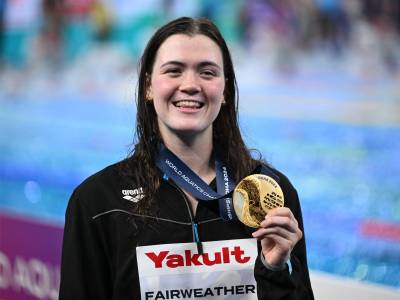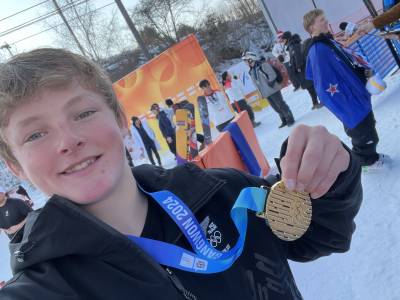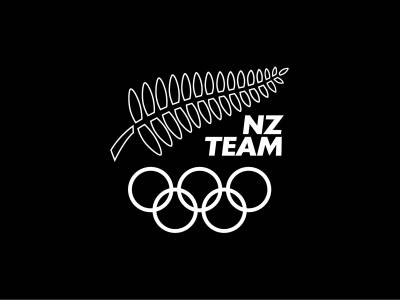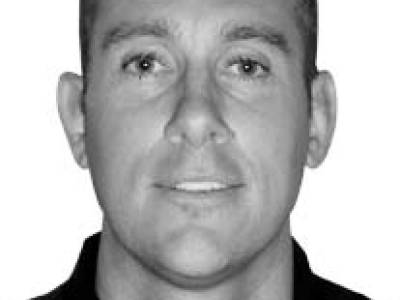Leilani Rorani, born in Hamilton in 1974, played squash under three surnames. She emerged as quiet, talented Leilani Marsh of Hamilton. Through the 1990s she was Leilani Joyce, squash star. Then, after her first marriage folded, she married Blair Rorani and it was as Leilani Rorani that she finished her career in fairytale fashion in 2002.
Whichever name she used, there was no doubting her ability. Before she was done, Rorani had held the world No 1 ranking for 11 months, had won two British Open crowns, had twice reached the final of the world championship and had won two Commonwealth Games gold medals and a world doubles title.
She grew up in a sports family, the second youngest of five children of Neal and Maisie Marsh. Leilani played rugby, tennis and basketball as a youngster and at 10 was introduced to squash at the local YMCA by her sports-mad father. He coached her initially by using instructions from renowned coach Dardir's book.
It must have worked because Leilani cut a swathe through the junior ranks, winning New Zealand titles at every age level from under-13 to under-23, plus the Australian under-17 and under-19 titles. She later won four national senior titles.
A cherished early squash memory was competing in the world junior championships in Hamilton in 1989 in a New Zealand team in which all four players – Lynora Hati, Nita Pearson, Judith Hill and Leilani - were Maori. “I was the young girl on the team, a little weed. But I was incredibly proud to be in an all-Maori team.”
At just 15, she hinted at her potential when she had to play the vital fourth match in the New Zealand senior inter-district competition. Her Waikato team trailed Auckland 2-1 and Leilani was up against experienced Judy Burgess, one of the country's best players. Leilani controlled the match beautifully and won 9-4, 9-2, 9-6. It was a significant moment in a fledgling career.
Her first year on the international circuit was 1993 and she began a relentless climb up the rankings, reaching No 6 in 1998 and No 3 the year after. With long arms and legs, Rorani used her reach well and was a strong volleyer. She glided around the court and made good use of slice, crosscourt angles and the attacking boast. Neven Barbour, who represented New Zealand for a decade and managed Leilani at the Commonwealth Games, said she became a tremendous player. “Leilani had good strokes and nice touch. She was a very efficient mover on the court, surprisingly quick. She did New Zealand proud with her record overseas,” he said.
She really broke through in 1999, when she won her first British Open title, in Aberdeen, batting through a difficult draw. She beat Natalie Grinham, Sue Wright, Stephanie Brind and Natalie Grainger without dropping a game and won a thrilling final 5-9, 9-6, 9-3, 10-8 against world champion Cassie Jackman of England. One newspaper reporter noted her “disarming charm and excitement over the victory” and said she was a particularly popular winner.
The following season, ranked No 1 in the world, she won her second British Open, in Birmingham, not conceding a game in the tournament.
She came heartbreakingly close to winning a world title. In 2000 she met Australian Carol Owens in the final, in Edinburgh, and looked on target when she led by two games and held matchpoints at 8-4 and 8-7 in the third. But Owens fought back and beat her in five games. “It took me a long time to get over that loss,” said Rorani. “I played well for 2½ games and it looked like it would be my day, but when Carol fought back I gradually lost confidence.”
At the 2001 world champs Rorani again marched through to the final, in Melbourne, where she was beaten by hometown favourite Sara Fitz-Gerald in straight games. For a time not winning a world title grated. “I'm kinder on myself now, and proud of what I did, but at the time it did hurt, being so close to winning the world title.”
Besides winning 16 international women's tournaments, Rorani enjoyed two other special moments.
In 1997 she teamed with long-time rival Philippa Beams to win the inaugural world doubles title in Hong Kong. The New Zealanders upset Fitz-Gerald and Owens in the semi-final and Jackman and Wright in the final.
Then, right at the end of her career, Rorani played brilliantly at the 2002 Manchester Commonwealth Games. She'd torn her Achilles tendon and been told by a specialist she wouldn't be able to walk properly for 12 months. Though she hadn't been able to train well, she limped into the Commonwealth Games team. Then she confounded the experts by winning the doubles gold medal with Owens and the mixed doubles gold medal with Glen Wilson. “For one week I had experienced a miracle because I had come right and was 100 per cent and actually thought I was healed. But when I arrived back in New Zealand I was on crutches again.”
The Roranis moved to Wellington in 2009 and to Sydney in 2012. They have four children. For a time Leilani suffered from post-natal depression. By confronting the problem publicly she helped other women deal with the same issue.
Rorani was New Zealand Sportswoman of the Year in 2000 and in 2001 was made a member of the New Zealand Order of Merit in 2001. In 2009 she was one of the inaugural inductees in the New Zealand Squash Hall of Fame.
Tweet Share
Leilani's Games History
-
Commonwealth Games Manchester 2002
- 1
- 1
-
Commonwealth Games Kuala Lumpur 1998












